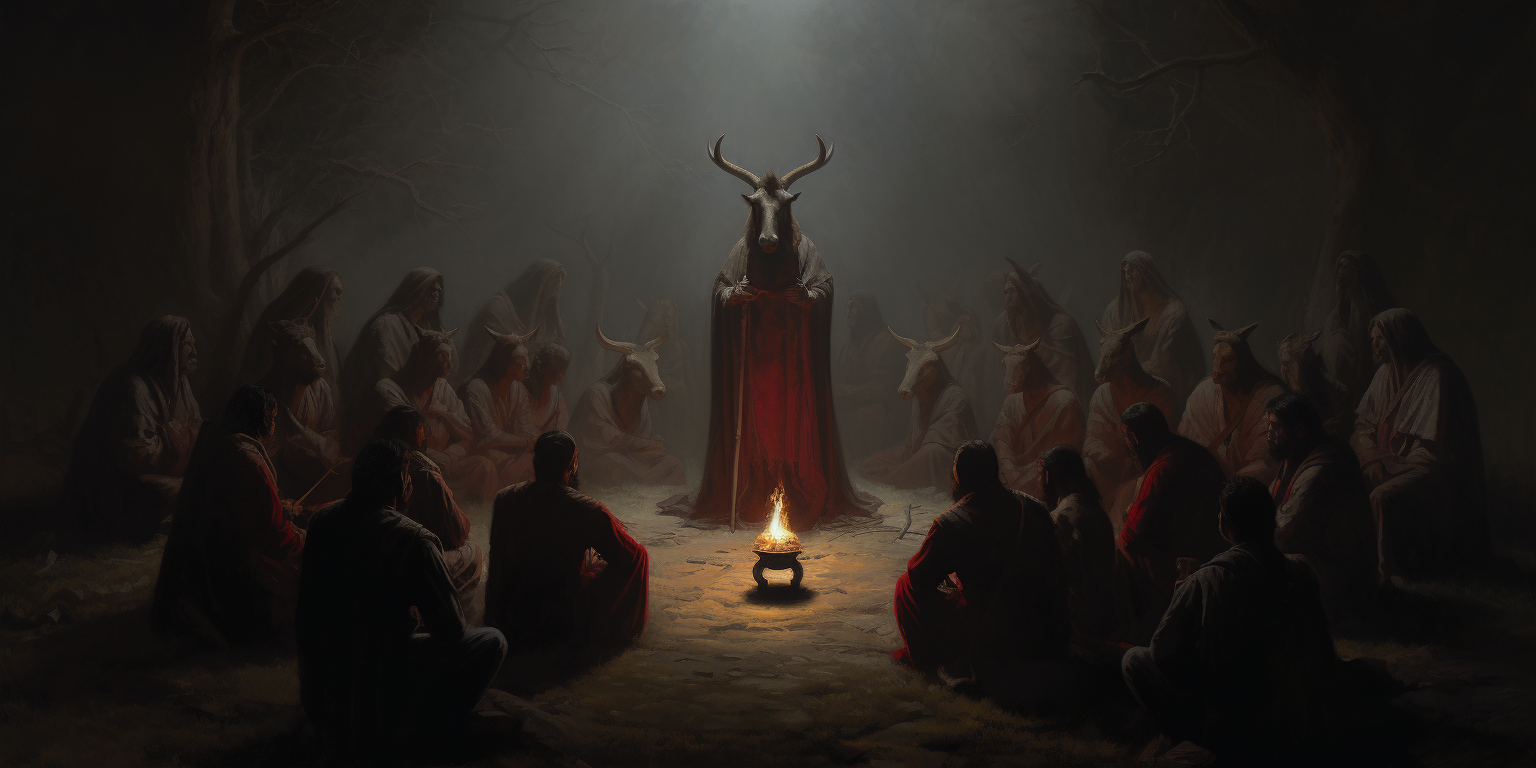In the past few weeks, I have seen a lot of people advance the argument that religious opposition to abortion developed only after the Supreme Court decided Roe v. Wade and that it primarily arose as a political tool. Biblical Scholar and well-known Tik Tocker Daniel McLellan made precisely this argument, with other variations of the same argument found here, and here, and here I have also repeatedly heard the argument that the Church of Jesus Christ is actually secretly pro-choice because it recognizes the possibility of abortion exceptions. Examples of this argument are legion, here are a few examples.
In light of this, I was curious about the history of anti-abortion rhetoric in The Church of Jesus Christ of Latter-day Saints. Turns out that abortion has been a topic of condemnation in the Church for a long time.
The earliest reference in the journal of discourses is by George A. Smith on Nov. 15, 1864. Smith spoke about those who had tarred and feathered Joseph Smith including a certain Dr. Dennison. He later discussed the sorry condition of those who had done this and that “Dr. Dennison died in the Ohio Penitentiary where he was incarcerated for procuring an abortion which caused death.” This earliest recorded reference does not actually comment on the morality of abortion, but it does link the practice of abortion with an anti-Mormon persecutor of our people. “Easy abortion has now removed the stigma from immorality, making free sex even freer still.”
Erastus Snow links abortion to a disregard for childrearing and parenting. His rhetoric on this point is particularly striking because it would not sound particularly foreign if preached in 2022 over a general conference pulpit:
The Latter-day Saints do not imitate the examples of the Eastern cities and the old commonwealths of the Atlantic seaboard in destroying their offspring. They do not patronize the vendor of noxious, poisonous, destructive medicines to procure abortion, infanticide, child murder, and other wicked devices, whereby to check the multiplication of their species, in order to facilitate the gratification of fleshly lust. We are not disposed to imitate these examples, nor to drink in the pernicious doctrine once uttered in Plymouth Church by the noted Henry Ward Beecher—that it was a positive evil to increase families in the land beyond a limited extent, and the ability of the parents to properly educate and maintain them, sustaining the idea of small families; in effect, justifying the mothers—the unnatural mothers—of New England, and their partners who sanction their efforts in destroying their own offspring, and in preventing the fecundity of the race.
By contrast, Snow continued, “The Latter-day Saints are taught to reverence the words of the God of Abraham, Isaac, and Jacob, concerning the multiplication of their species, and are called as His children to multiply and replenish the earth.”
John Taylor’s condemnation of abortion was particularly stark. He quoted a Doctor from the Ohio State Medical Society who called America “a nation of murderers” because of the rampant practice of abortion. He also quoted an Episcopal minister who warned: “that they who do such things cannot inherit eternal life.” He continued, “If there be a special damnation for those who shed innocent blood, what must be the portion of those who have no mercy upon their own flesh.” President Taylor then added his own words of agreement calling abortion “hellish,” “fiendish,” “outrageous” and one of the “damning evils.” President Taylor derided the fact that the same people promoting abortion and other immortal practices were those who were claiming to be moral reformers and coming to Utah territory to condemn polygamy. And he warned that “there are some of these people crawling around us like so many vipers, and insinuating their hellish, murderous practices into the families of some who call themselves Latter-day Saints. Woe! to such Saints. You cannot have a place among us. No woman murderer, no man murderer can have a place among the Latter-day Saints[.]” He then warns that people who promote these immoral practices “will never inherit the Kingdom of God” even if they are able to convince bishops or stake presidents that they are worthy. In his subsequent remarks, President Taylor once again condemned “the terrible crimes of feticide and infanticide” and warned sisters to “guard yourselves against these infamies, or you will sink yourselves down, down, down to pits of infamy and ruin, that you never dreamed of.”
Henry W. Naisbitt similarly condemned the evils of “feticide [killing of a fetus], infanticide, and abortion.” And in 1890 George Q. Cannon condemned the “downward road” of his generation, stating that “they are full of lust and abominable evils. Abortion and foeticide and kindred sins are practiced almost universally.”
Abortion does not appear to be again covered in General Conference sermons until 1952. But this should not be seen as an indication of any slacking of the Church’s opposition. From the post-civil war era to the 1960s, abortion was largely illegal throughout the country and there was no concerted effort to legalize it, so it really would not be expected to come up.
But the world was changing again. And in 1952, Ezra Taft Benson mentioned abortion being common as one of the moral causes of the decay of the Roman empire. In 1960, Elder Delbert Stapley warned of “[t]he disgraceful abortion racket” which “draws into its net young women pregnant out of wedlock who wish to cover up their sin.” He also explained that “[m]arried couples are also guilty of this heinous sin.”
In the early 1970s, the topic became a recurring one again, likely in light of more concerted legalization efforts. In 1970, Ezra Taft Benson bemoaned “those political leaders who are promoting birth control and abortion” quoting Jacob’s channeling of Isaiah in the Book of Mormon—”O my people, they who lead thee cause thee to err and destroy the way of thy paths.” He then “warn[ed] the sisters in all seriousness that you who submit yourselves to an abortion or to an operation that precludes you from safely having additional healthy children are jeopardizing your exaltation and your future membership in the kingdom of God.”
Spencer W. Kimball also warned that same year of missed opportunities including “the use of the pill, abortion, and other means of damaging or destroying the family and home life so strongly urged as vital to our continued civilization.”
In 1971, President Joseph Fielding Smith urged Church members “to forsake the evils of the world.” In his list, he included unchastity, efforts to prevent childbirth, and the “unrighteous and evil acts of abortion.” Immediately after his reference to abortion, he warned that “[n]o member of the Church can be accepted as in good standing whose way of life is one of rebellion against the established order of decency and obedience to law.”
The same year, Mark E. Peterson bemoaned the fact that “easy abortion has now removed the stigma from immorality, making free sex even freer still.” The following year A. Theodore Tuttle linked permissiveness for abortion to a “view of woman … that demeans motherhood and her exalted role; that even condones abortion and its attendant evils; that sets aside the role God gave to her.”
The topic of abortion continued to be a common one over the pulpit and in church publications following the decision in Roe. In 1973 shortly after Roe was decided, the First Presidency issued a statement in the Ensign:
Abortion must be considered one of the most revolting and sinful practices in this day. … Members of the Church guilty of being parties to the sin of abortion must be subjected to the disciplinary action of the councils of the Church as circumstances warrant.
In the statement, members were counseled neither “to submit to or perform an abortion except in the rare cases where [it is medically necessary] … even then it should be done only after counseling with the local presiding priesthood authority and after receiving divine confirmation through prayer.” “Making it legal to destroy newly conceived life will never make it right.”
In 1975 James E. Faust entitled a talk “The Sanctity of Life” and explained that he “wish[ed] also to be an advocate for the unborn” and criticized the fact that “we have come to a time when the taking of an unborn human life for nonmedical reasons has become tolerated, made legal, and accepted in many countries of the world. But making it legal to destroy newly conceived life will never make it right. It is consummately wrong.”
At that same conference, Spencer W. Kimball declared that “this Church of Jesus Christ opposes abortion and counsels all members not to submit to nor participate in any abortion, in any way, for convenience or to hide sins. Abortion must be considered one of the most revolting and sinful practices in this day. … To interfere with any of the processes in the procreation of offspring is to violate one of the most sacred of God’s commandments.” He also warned that “members of the Church guilty of being parties to the sin of abortion must be subjected to the disciplinary action of the councils of the Church, as circumstances warrant.”
Gordon B. Hinckley spoke in 1989 of a teenage couple who got pregnant, and wondered “should she seek an abortion.” As he explained, “temptation was there in the frightening contemplation of the ordeal that lay ahead.” This is the only pre-Roe reference by leadership to abortion even being considered by a Latter-day Saint. But Elder Hinckley expressly rejects the possibility: “No, never, she had concluded. Life is sacred under any circumstance. How could she ever live with herself if she took measures to destroy the gift of life even under these conditions?”
All told, abortion was condemned in 32 General Conference talks in the 1970s, 15 talks in the 1980s including President Nelson’s landmark address on the topic, and 19 times in the 1990s. It has since become a less frequent topic, although in the 2000s it came up in 6 talks.
From the 1880s to today, living Prophets and Apostles of the Church of Jesus Christ have therefore condemned abortion unequivocally and with a single voice. They have called it a grievous sin and analogized it to murder. They have warned that those who engage in abortion put at jeopardy their church membership and their eternal salvation. I cannot speak with authority as to whether or not abortion was merely a topic of convenience for evangelicals or other pro-life Churches, though there are good reasons to be skeptical of the narrative that this topic was adopted as a cynical political ploy. But based on this review I can definitely say that it was not so for The Church of Jesus Christ of Latter-day Saints. The Lord’s position on the topic, as channeled through His inspired servants, has been clear from the beginning.















